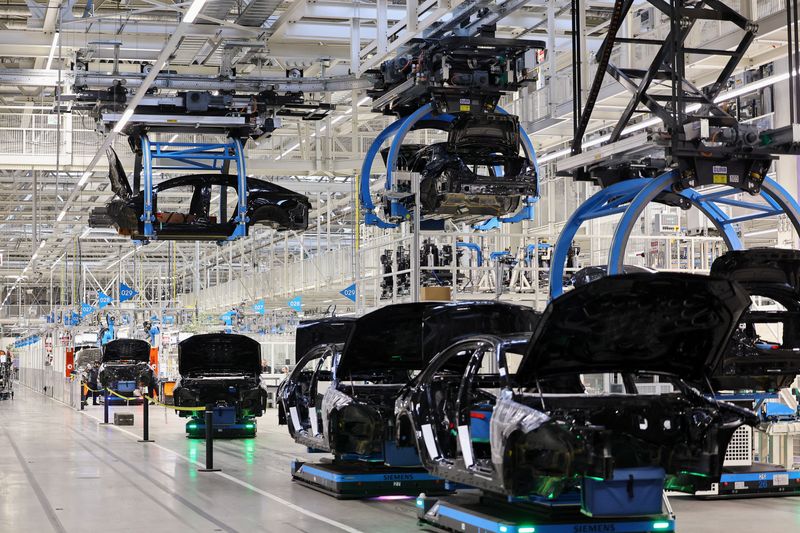[ad_1]
By Vladimir Soldatkin
SOCHI, Russia (Reuters) – Russian industry may suffer the fate of car makers in Germany, which have shed tens of thousands of jobs, if it moves too fast to replace fossil fuels, a Kremlin adviser said on Wednesday.
“The Russian Federation supports a gradual transition, a gradual transformation, so as to avoid shock scenarios on the energy markets, industrial markets,” Kremlin climate envoy Ruslan Edelgeriyev told a conference in Sochi, southern Russia.
“Miscalculated ambitions damaged Germany’s auto industry,” he said, speaking five days before the next U.N. climate change conference begins in Baku, Azerbaijan.
Russia is the world’s biggest exporter of natural gas and number two exporter of oil. It is one of the world’s top carbon dioxide emitters along with China, the United States and India.
Russia joined the Paris climate change pact in 2019, which commits countries to setting targets every five years to curb greenhouse gas emissions. It has faced – and rejected – criticism from the United States that it is not doing enough.
A 2050 deadline to halt net carbon emissions – a process in which forests, hydro and nuclear energy are intended to play key roles – is widely cited as necessary to prevent the most extreme global warming; Russia and China have both committed to a 2060 target instead.
The transformation of the German car industry could lead to 186,000 jobs losses by 2035, of which roughly a quarter have already occurred, a study commissioned by the VDA auto industry association released showed last month.
The 46,000 jobs already lost between 2019 and 2023 were due mainly to the transition to electric vehicles, according to the study conducted by research institute Prognos.
(Reporting by Vladimir Soldatkin; Editing by Mark Trevelyan)
[ad_2]
Source: finance.yahoo.com



